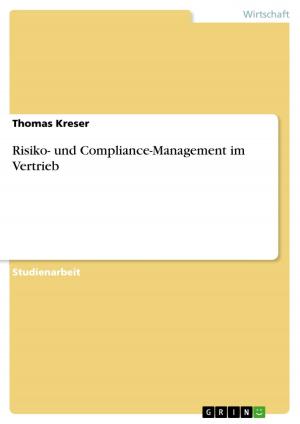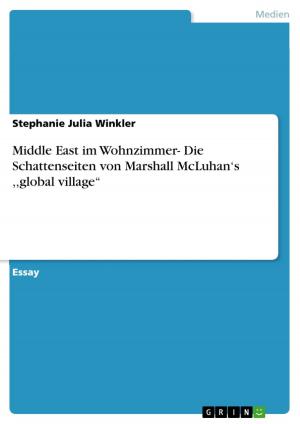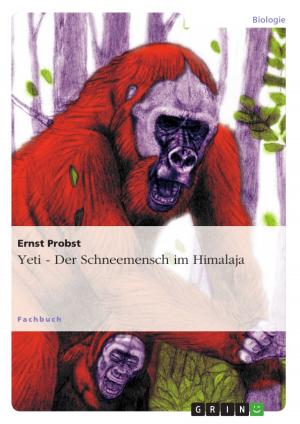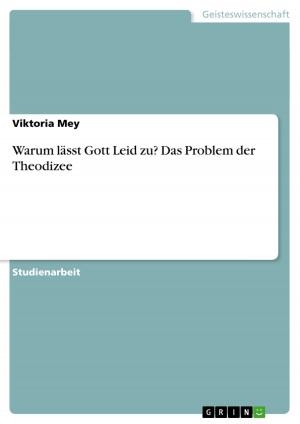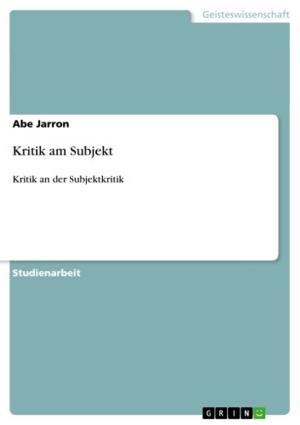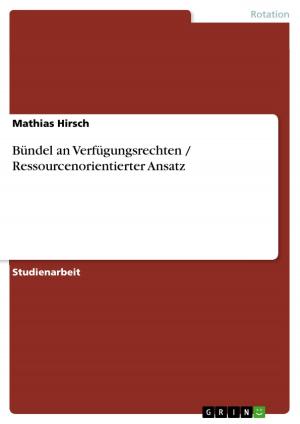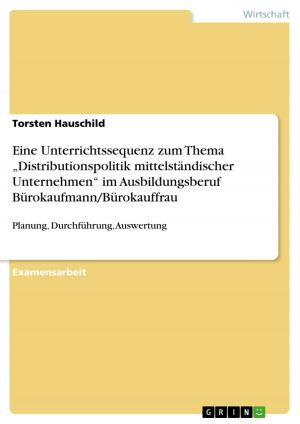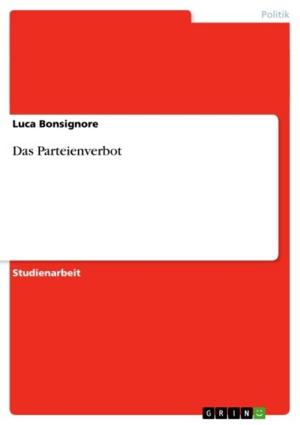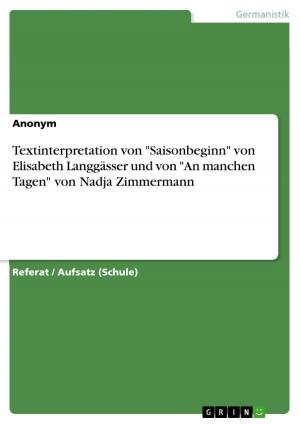Traces of Film - Jonathan Lethem's Motherless Brooklyn as a Detective Story
Jonathan Lethem's Motherless Brooklyn as a Detective Story
Nonfiction, Entertainment, Drama, Anthologies| Author: | Christoph Bietz | ISBN: | 9783638403009 |
| Publisher: | GRIN Verlag | Publication: | July 27, 2005 |
| Imprint: | GRIN Verlag | Language: | German |
| Author: | Christoph Bietz |
| ISBN: | 9783638403009 |
| Publisher: | GRIN Verlag |
| Publication: | July 27, 2005 |
| Imprint: | GRIN Verlag |
| Language: | German |
Studienarbeit aus dem Jahr 2005 im Fachbereich Amerikanistik - Literatur, Universität zu Köln (Englisches Seminar), Veranstaltung: Word, Image, Sound: New York, 29 Quellen im Literaturverzeichnis, Sprache: Deutsch, Abstract: Introduction: Jonathan Lethem's Detective Story Motherless Brooklyn as a Pretext for a Hollywood Movie Sometimes when we read a book and our imagination is roused by the words we read, we cannot wait for this story being told by a film. We want to see if our imagination fits the 'real' pictures on-screen. Having read a novel, there is a quite well- fitting German term that people use when they have liked the story and its characters. The novel has probably had a strong impact on their perception of the plot, and the language seems to have generated longlasting images in their minds. One would - informally - say: 'This is such a good story. This book is really (now comes the term) filmreif.' When I read Jonathan Lethem's Motherless Brooklyn, that was exactly what occurred to me. In this paper, I want to examine theoretically what was a sudden idea, an intuitive feeling in the beginning, and connect film science with literary analysis. The novel can be classified as a detective story as it seems to follow the pattern of a classical detective story, and it shows lots of features that could be read as a prose source for a movie. The narrative, i.e. the story, its subjects or motifs and the way it is told remind one of the typical sujets of the classical Hollywood cinema. It is not uncommon that good (in the sense of critically acclaimed) and successful (in the sense of best-selling) books are 'translated' into films - in all kinds of genres and in all kinds of countries. When a film adapts a novel, it has to stand numerous comparisons to its literary predecessor. But whatever the 'better' medium for telling a good story is - the history of filmadaptation speaks for the phenomenon of adaptation itself: Many novels turned out to become good and successful films as well. Especially the detective story seems to be made of a pattern that works perfectly for films as well. The Big Sleep by Raymond Chandler and The Moonstone by Wilkie Collins are only two examples for successful film adaptations of classical detective stories. What special pattern is this? ...
Studienarbeit aus dem Jahr 2005 im Fachbereich Amerikanistik - Literatur, Universität zu Köln (Englisches Seminar), Veranstaltung: Word, Image, Sound: New York, 29 Quellen im Literaturverzeichnis, Sprache: Deutsch, Abstract: Introduction: Jonathan Lethem's Detective Story Motherless Brooklyn as a Pretext for a Hollywood Movie Sometimes when we read a book and our imagination is roused by the words we read, we cannot wait for this story being told by a film. We want to see if our imagination fits the 'real' pictures on-screen. Having read a novel, there is a quite well- fitting German term that people use when they have liked the story and its characters. The novel has probably had a strong impact on their perception of the plot, and the language seems to have generated longlasting images in their minds. One would - informally - say: 'This is such a good story. This book is really (now comes the term) filmreif.' When I read Jonathan Lethem's Motherless Brooklyn, that was exactly what occurred to me. In this paper, I want to examine theoretically what was a sudden idea, an intuitive feeling in the beginning, and connect film science with literary analysis. The novel can be classified as a detective story as it seems to follow the pattern of a classical detective story, and it shows lots of features that could be read as a prose source for a movie. The narrative, i.e. the story, its subjects or motifs and the way it is told remind one of the typical sujets of the classical Hollywood cinema. It is not uncommon that good (in the sense of critically acclaimed) and successful (in the sense of best-selling) books are 'translated' into films - in all kinds of genres and in all kinds of countries. When a film adapts a novel, it has to stand numerous comparisons to its literary predecessor. But whatever the 'better' medium for telling a good story is - the history of filmadaptation speaks for the phenomenon of adaptation itself: Many novels turned out to become good and successful films as well. Especially the detective story seems to be made of a pattern that works perfectly for films as well. The Big Sleep by Raymond Chandler and The Moonstone by Wilkie Collins are only two examples for successful film adaptations of classical detective stories. What special pattern is this? ...


